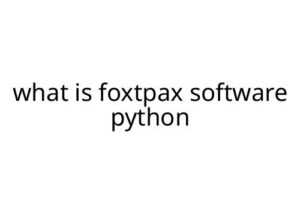Understanding Sports Betting Basics
Sports betting combines strategy and chance and understanding the basics is crucial. Those who comprehend the nuances often make more informed decisions.
Key Terminology and Concepts
In sports betting, several terms and concepts provide foundation:
- Odds: Reflect the probability of an event occurring and determine potential payouts. Decimal odds indicate the total payout, while fractional odds show profit relative to the stake.
- Point Spread: Levels the playing field by assigning a handicap to teams, determining the margin of victory needed for a bet to succeed.
- Moneyline: Focuses solely on which team or player wins, with odds indicating the required stake to win a certain amount.
- Over/Under: Also known as totals, this bet involves predicting whether the total points scored in a game will be over or under a specified number.
Grasping these terms enhances the betting experience.
Importance of Understanding Different Bets
Recognizing various bet types influences potential outcomes and satisfaction levels. Familiarity with options like parlays, prop bets, and futures helps bettors craft strategies aligned with their risk tolerance. For instance, parlays combine multiple wagers for a higher payout but increased risk. Knowledge empowers bettors to diversify and refine tactics.
Popular Types of Sports Bets

Sports betting offers a range of options, each with unique features. Knowing these types enhances strategic planning and informed decisions.
Moneyline Bets
In moneyline bets, bettors predict the outright winner of the game. Odds indicate favorites and underdogs, with favorites presenting lower potential profit. For example, if Team A is +150 and Team B is -200, wagering $100 on Team A yields $150 if they win. This simplicity appeals to many, making it one of the most accessible bet types.
Spread Bets
Spread bets involve predicting the margin of victory. Bookmakers set a point spread to level the playing field between teams of varying strengths. For instance, a -7.5 spread means the favored team must win by more than 7.5 points for the bet to pay. Conversely, choosing the underdog requires them not to lose by more than 7.5 points, combining skill and analysis in selections.
Over/Under Bets
Over/under bets, or totals, focus on the combined score of both teams. Bettors choose whether the actual score exceeds or falls below the sportsbook’s set number. If a game’s over/under is 50 points, betting the over needs a combined score above 50 points. These bets engage interest without picking specific winners.
Parlay Bets
Parlay bets combine multiple selections into a single wager, amplifying potential profits through cumulative odds. Success requires all picks to win, increasing risk but offering substantial rewards. A parlay with three winning selections magnifies the returns, appealing to those seeking significant payouts from calculated risks.
Advanced Betting Types
Understanding advanced betting types can elevate your sports betting strategy, offering both challenges and opportunities for increased potential returns.
- Teaser Bets
Teaser bets provide a way to adjust point spreads in your favor for multiple games under one wager. They allow you to shift the point spread to a value that’s more favorable, typically across several games. For example, if a team is a 3-point favorite, a 6-point teaser would move the spread to a 3-point underdog. This flexibility reduces risk, but it also lowers the potential payout compared to a standard parlay bet.
- Prop Bets
Prop bets (or proposition bets) focus on specific aspects of games rather than the final outcome. They relate to player performance, team statistics, or unique occurrences within the game. Examples include predicting the first player to score a touchdown or the total number of strikeouts by a pitcher. These bets enhance engagement and provide diversification, targeting elements that may not directly influence the game’s outcome.
- Futures Bets
Futures bets hinge on long-term predictions, typically placed well in advance of the event’s conclusion. These involve outcomes like the winner of a league championship or the season MVP. They often offer enticing odds due to the uncertainty and time frame involved but require a deep knowledge of the sport and teams for successful forecasting. Their appeal lies in the ongoing engagement and potential for significant returns if predictions prove accurate.
Choosing the Right Bet for You
To select a suitable sports bet, it’s essential to consider personal interests, team knowledge, and risk appetite. Different bets offer varied experiences and potential rewards.
Analyzing Sports and Teams
Understanding the sports and teams involved informs your betting choices. Analyze team statistics and player performance to predict outcomes more accurately. Consider factors such as recent form and injuries, which impact team performance. By keeping up with expert analysis and historical data, you enhance your ability to select the best bet for a given match-up.
Considering Risk and Reward
Balancing risk and reward is crucial when selecting bets. Low-risk bets like moneylines offer more predictable outcomes but typically yield smaller returns. In contrast, higher-risk bets such as parlays and futures promise valuable payouts if successful. Align your betting strategy with your risk tolerance, whether preferring frequent, smaller wins or seeking substantial gains through riskier bets.








